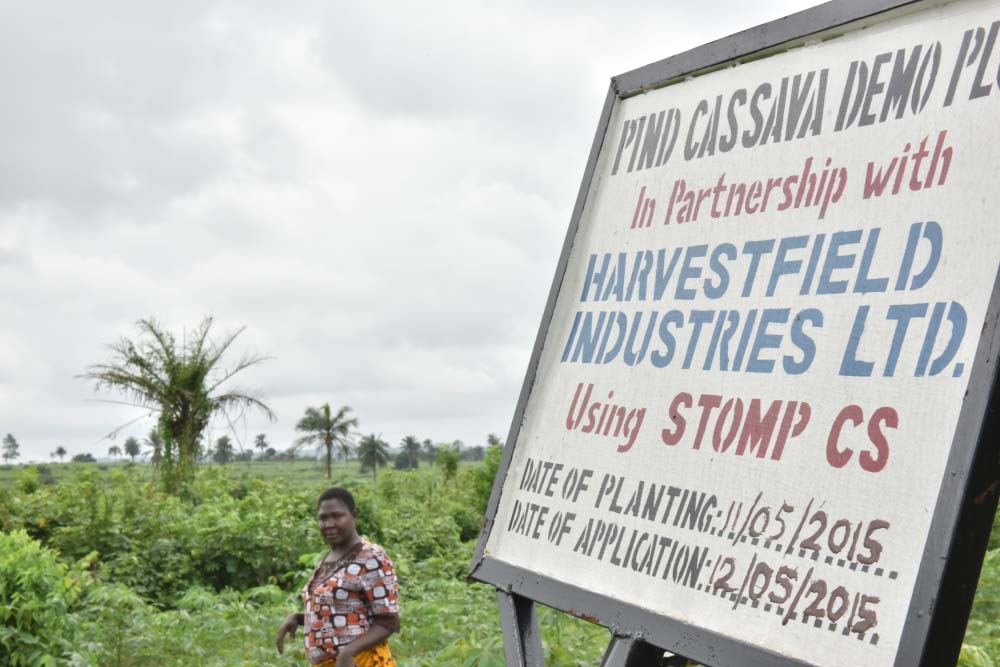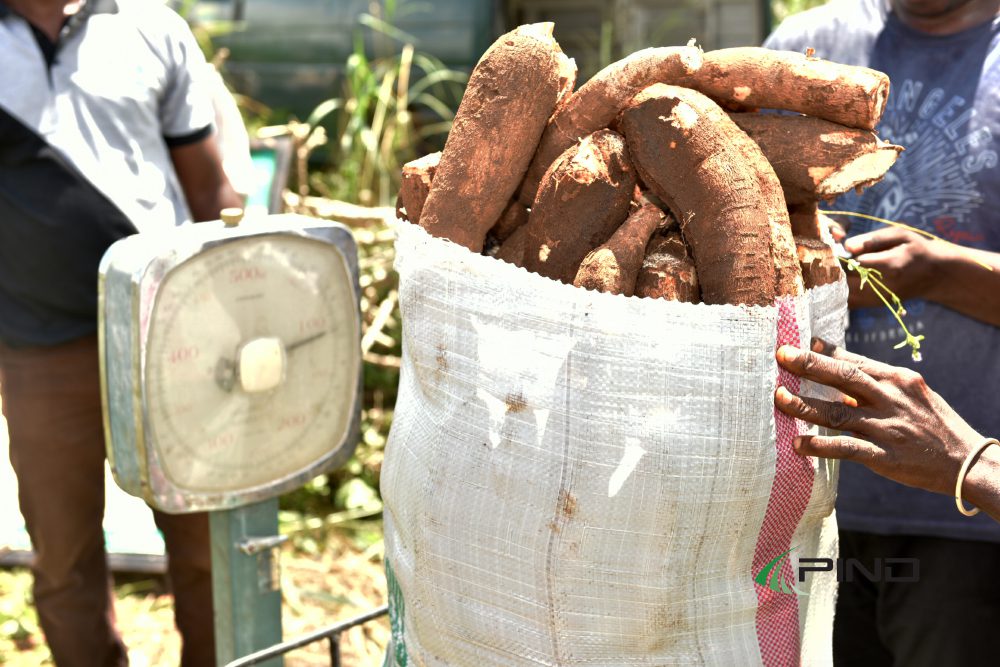Ifeanyi Eke seats on a blue plastic chair in front of his shop at Umukabia, in Ngor-Okpala Local Government Area a of Imo state. He is a graduate of accounting from the Abia State Polytechnic and has been unemployed. He said, “after the National Youth Service Corps (NYSC) in 2009, I looked for a job but I could not find. I decided to come back to the village to see what I could do. I noticed that people were planting cassava for subsistence and not for business.”
Eke and some of his friends formed a group called Mezie Umukabia Farmers Multipurpose Cooperatives Society. “After the formation, we now decided to go into cassava farming to improve the production of cassava in my community,” he continued.
Cassava is among the favorite staple foods grown in Nigeria and has an increasingly diverse use for its products. As a result of its multi-purpose utilization, cassava farming is becoming lucrative and offers numerous opportunities to would-be investors. Experts and operators in the business have stated that cassava and its products serve as food to about 90 per cent of Nigerian households.
NYSC is a mandatory one year national service after higher education schooling to inculcate in Nigerian Youths the spirit of selfless service to the community
Eke and his friends however experienced low yield and became disappointed. “We were not getting much because we were using the old system of planting. Just to open the ground and put the stem inside without putting fertilizer with the thought that the ground would produce fertilizer by itself and it would just grow.”
Cassava is among the favorite staple foods grown in Nigeria and has an increasingly diverse use for its products. As a result of its multi-purpose utilization, cassava farming is becoming lucrative and offers numerous opportunities to would-be investors
Steady Aigbodun, a cassava farmer in Edo State faced similar numerous challenges of low yield in his cassava farms due to poor agricultural practices. “In the area of planting, we used to plant in the flat rate. So when we plant and harvest, the crops come out in the flat rate. They come out with a lot of branches and that method reduces yield,” says Josiah Azemobor.
The Foundation for Partnership Initiatives in the Niger Delta (PIND) is working to improve the income of smallholder cassava farmers in the Niger Delta by tackling the problems associated with low yield through the demonstration farms. PIND’s has been carrying out interventions in the cassava value chain around best practices in cassava farming, improving the access of farmers to enhanced crop protection products and processing technologies through the demonstration farms.
Cassava farmers reported higher yields from their farms as a result of the adoption of improved practices. According to Misan Edema-Sillo, PIND’s senior market development advisor, “on the average, a cassava farm yields between 8 to 10 tons per hectare based on PIND’s assessment, whereas there’s potential to get as high as 25 tons per hectare”.
Eke said, “PIND came and did three days cassava demo with an established demonstration farm. They use their herbicides on the land and a tractor came and ploughed the land. They harrowed and ridged it for planting. PIND came with the newly improved cassava stems. After planting they showed us how to apply the herbicides.”
“We applied again until it reached harvesting period. What we harvested there was something else. We did not know cassava can get a tuber of that level. It is then we realized it’s a business, so some of us entered into cassava and stem production,” continued Eke.
“PIND was here for a cassava demo,” says Aigbodun who was trained in Edo. “They taught us cassava stem cutting and the application of herbicides and the planting system. They also taught us weed control, we discovered that the yield was high”.
Over 18, 000 beneficiaries have been reached through the cassava demonstration training and other business information that help farmer productivity. “Of that number, about 5, 000 cassava farmers have been reached in 2018 alone, these activities were conducted by PIND partners including agro input companies, agro dealers and spray service providers.”
To expand farmers’ outreach, demonstration plots have now been established in Akwa Ibom, Abia, Edo, Delta, Imo and Ondo States, facilitating about 300 new jobs and increasing the net additional income of about N235 million by end of 2017.






